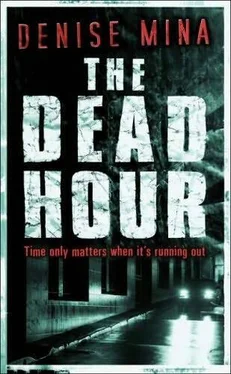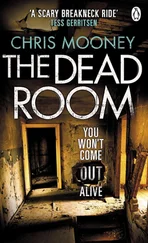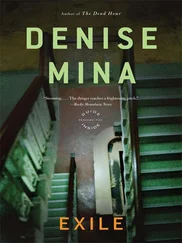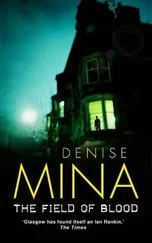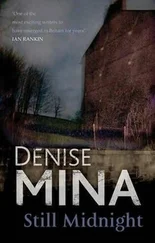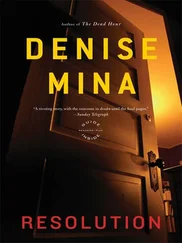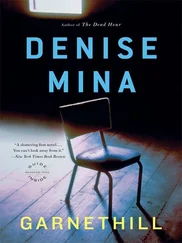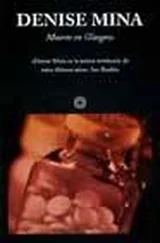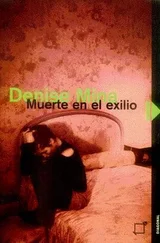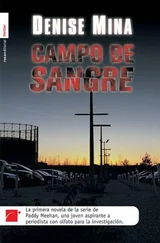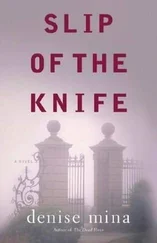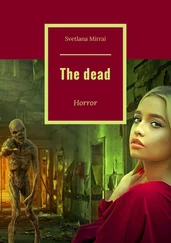“He’s hardly going to park his car behind me and run up and throw a petrol bomb at me, is he? Anyway, there was only one car in the car park apart from us. Came in after you’d gone into the building and parked as if it had business there.”
“Was it a red Ford, by any chance?”
“No, did ye not see it? It was a BMW.”
Paddy’s exhaustion was making her feel queasy and the top deck of the bus smelled like a smoker’s tonsils. She had a packet of crisps in her bag but was so nauseated she genuinely didn’t want them. She sat still, pains in her stomach, and watched the city pass by the window.
Lafferty would be out there somewhere, looking for her. He’d know by now that she hadn’t been in the car and he’d be angry, prowling the city like a hungry dog. Miserable and scared for her family, she leaned her head against the window. She’d told her mum to stay in the house, asked her to stop Mary Ann from going out too much, and told her to stay away from the windows. Paddy didn’t tell her about the firebomb or about Billy; she didn’t want to terrify her, she just said someone was after her and might come to the house and she should call the police if she saw a BMW or a red Ford. If Trisha had been herself she would have cried down the phone to Paddy and begged her to come home, but she was in her strange temper and sounded angry instead, huffy, as if Paddy was being self-important and making a lot of silly fuss.
The housing stock along the broad Edinburgh Road was a linear map of a century of social housing, from scrubby squares of muddy grass around garden city dreams, to high-rise machines for living. Occasionally they passed a wall of undemolished tenements, the old housing design that had worked in the city for centuries.
Easterhouse was barely twenty years old. In its short life the housing scheme had developed a reputation as one of the roughest ghettos in Europe. It was part of a social engineering project that carved the socialist city up into impassable islands surrounded by motorway. The most malcontent city center populations had been moved to the satellite estates, a long bus ride away from spontaneous social upheaval. Without the presence of a common enemy, frustration fermented among the people and they began to eat themselves. Gangs were rife. If Easterhouse had a heraldic shield it would need symbols for drunkenness, medication, and despair. A third of the estate was on disability benefit, occupying that gray area between extreme long-term poverty and illness.
It wasn’t a place to wander around. Gangs were territorial and known for attacking anyone who wandered through their patch. It was worse at night; Paddy knew from taking shortcuts in the calls car that the boys hung around in packs, watching the car pass, carrying sticks and swords, alert as hyenas. She was counting on its not being as bad during the day.
As soon as she stepped off the bus she felt unsafe. The stop was at the edge of a barren field, all the houses set well back from the traffic. The few houses that were within view were boarded up with fiberglass, the light coming through from the back of the house making it glow like the skin of a drum. Bottles lay smashed in the street or scattered on the grass. Paddy felt a long way from the small-town coziness of Rutherglen.
A woman pushing a pram scuttled along the mud track toward her, her anorak hood pulled up against imaginary rain, her head down. On the distant horizon, just before the houses, unsupervised children chased each other around a playground where the baby swings had been maliciously wound around the top bar and the merry-go-round was burned out, the wooden base nothing but a sooty stump. Paddy walked along to the corner and followed the sign for the shopping center.
She came to a row of meager shops. Three of them were shut and shuttered against the populace. A licensed grocer and the law center were still open. The bookies’ was operating with its windows boarded over with wood and a sign declaring cheerfully WE’RE STILL OPEN! inviting the vandals to have another go.
The Easterhouse Law Center was in an unprepossessing shop unit with nothing more than a poster in the window to explain what it was. The glass on the door was covered in notices: yellow posters for an ex-offenders’ support group, a change of venue for a tenants’ rights meeting, notices about expenses available for prison visits.
When Paddy opened the door, notices fell off and fluttered to the floor as a shop bell tinkled happily. She bent down and picked up the papers, turning back to the door and trying to find the space they had come from.
“Leave it,” said a harsh voice. “Give them to me.”
A woman held her hand out. Her hair was cut in a wedge with dyed blond streaks, yellow on black, like a wasp. She was young, about the same age as Paddy, but her mouth was pinched bitterly and her eyes wrinkled where they were habitually narrowed. She looked Paddy over, head tilted to one side, as if she couldn’t quite believe what life was forcing her to look at now.
Paddy put the notices in her hand, expecting a cursory thank-you from the woman. When it didn’t come, Paddy got confused and thanked her instead. She frowned as if Paddy had just shat in her pocket. Paddy apologized reflexively, prompting another look of disgust.
The woman retreated to a desk, dropping the leaflets in the bin as though she couldn’t bear to hold them anymore. She sat down at a paper-strewn desk with a typewriter on it. A purple can of Tab was sitting on a stack of used carbon paper next to a full ashtray.
Paddy glanced around the office to see if there was anyone else she could speak to. There was another desk, bare of effects, but the rude woman was alone. Pulling a cigarette out of a packet of Marlboros and lighting it with a disposable lighter, the nippy woman sat back and looked Paddy over, guessing she wasn’t in for legal representation. She blew an impertinent stream of smoke at her.
“Selling something?”
“No.” Paddy stepped toward her. “I wanted to ask about Mark Thillingly?”
The nippy woman narrowed her eyes. “Yeah, well, Mark’s dead. They say he killed himself.” She shut her eyes for a moment and took a draw on her cigarette.
Paddy guessed that being brutal might pass for integrity. “I know. I was there when they pulled him out of the water.”
The woman flinched but looked at her with renewed interest. “Who are you?”
“I’m Paddy Meehan, Scottish Daily News. ” Paddy held her hand out but the nippy woman declined to take it. Paddy dragged a chair over from the other desk and sat down. “So, Mark Thillingly,” she said as she pulled her notebook out. “He worked here, didn’t he?”
“Yeah. He worked here.” The woman hesitated again. “He worked here…”
“Did he ever mention a woman called Vhari Burnett?”
“Aye, she worked here too. Mark gave her summer work when she was at uni.”
“And were you here then too?”
“Aye. It was when Vhari and Mark were going out together. Went together until Diana came along and poached him.” She sucked her cigarette hard, breathing in deep, making Paddy’s throat close at the memory of her smoking binge with Diana in the conservatory two nights ago.
“I like Vhari better. She’d meet scum through this center and then help them do stuff like fill out forms for the social security, stuff she wasn’t getting paid for and didn’t need to do. Do anything, she would.”
“Was Mark involved like that?”
“Only when she was here. They made each other nice.” The woman blushed at the silly, pink word. “Know what I mean?”
“I know exactly what you mean,” said Paddy.
Читать дальше
